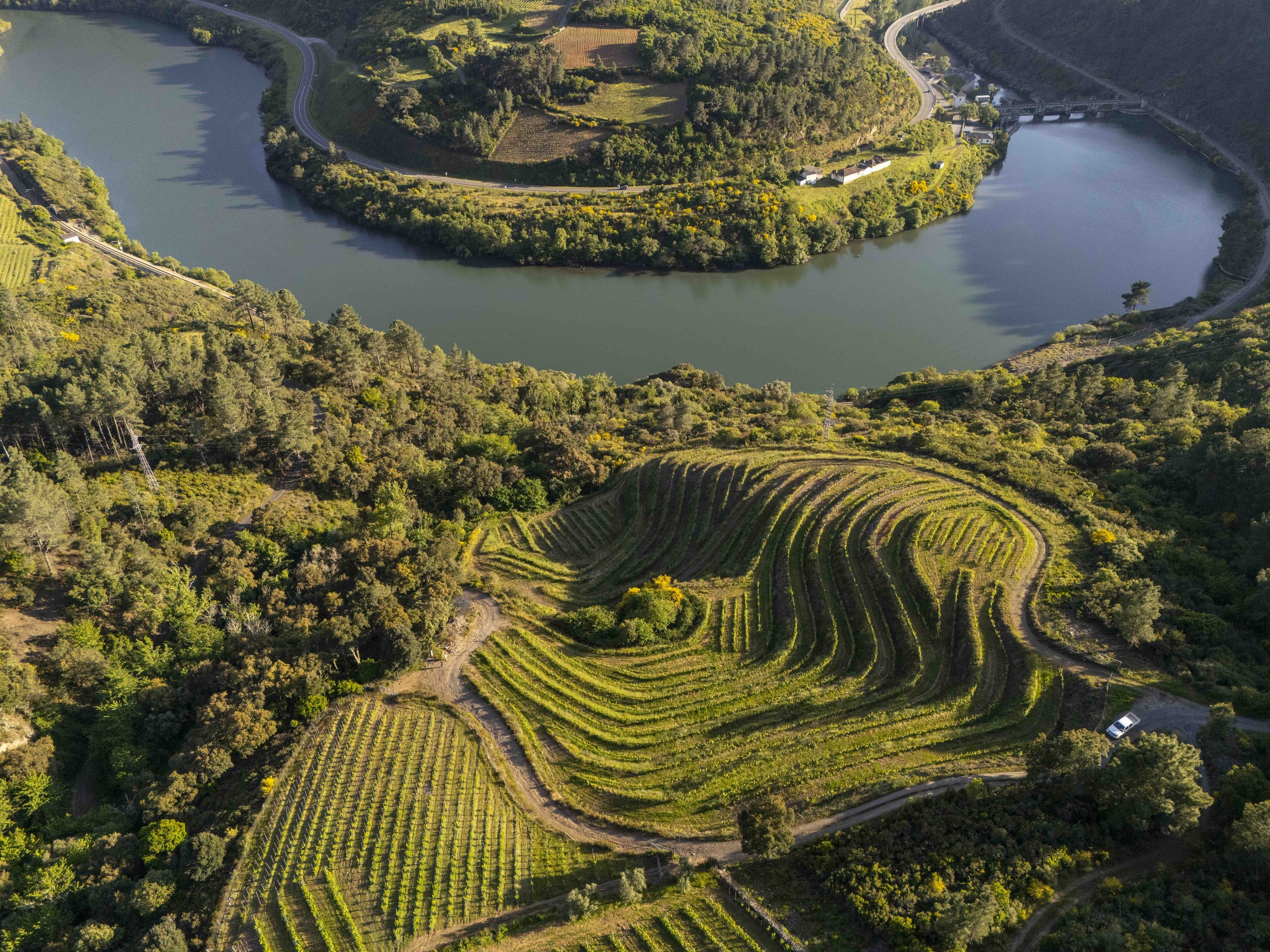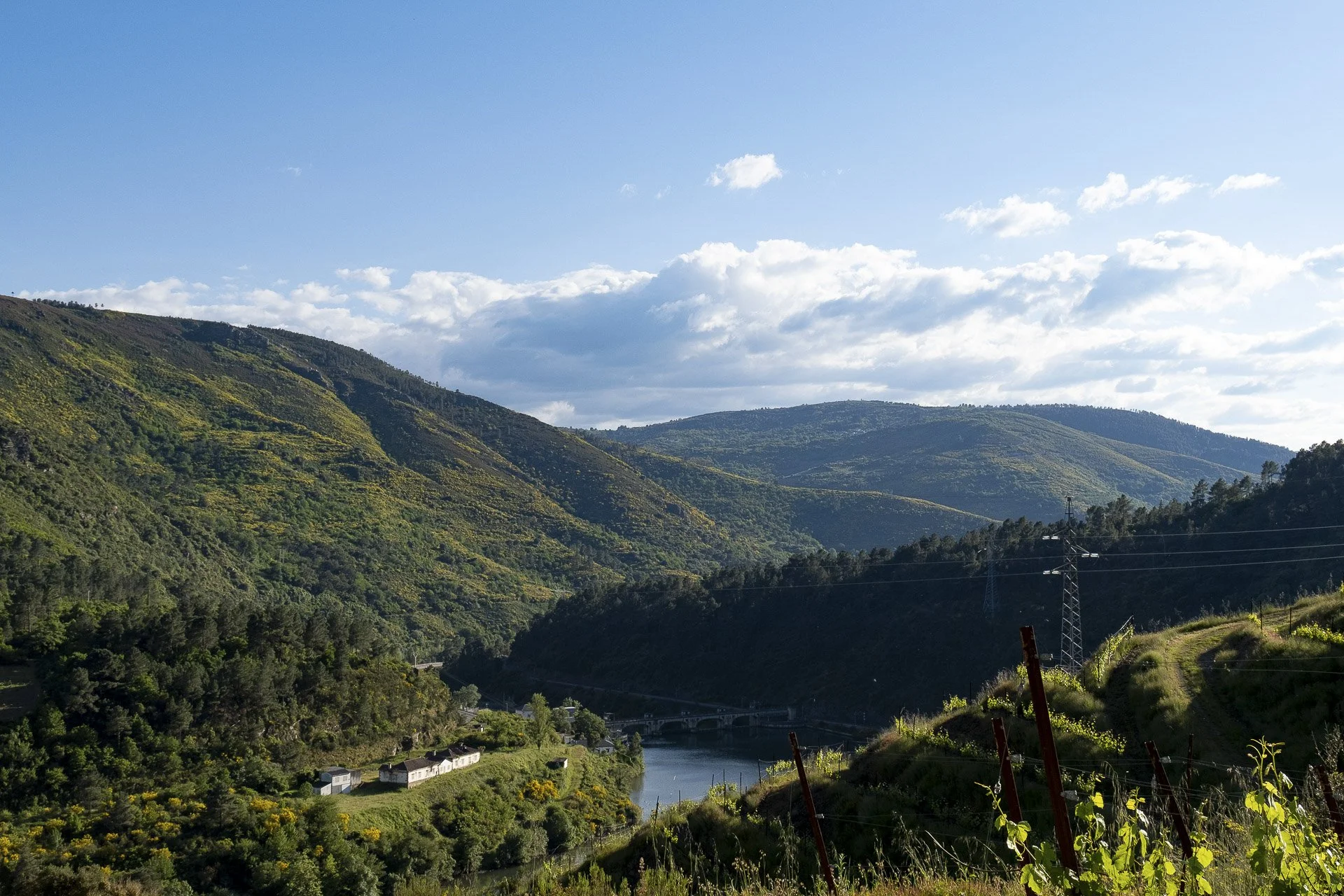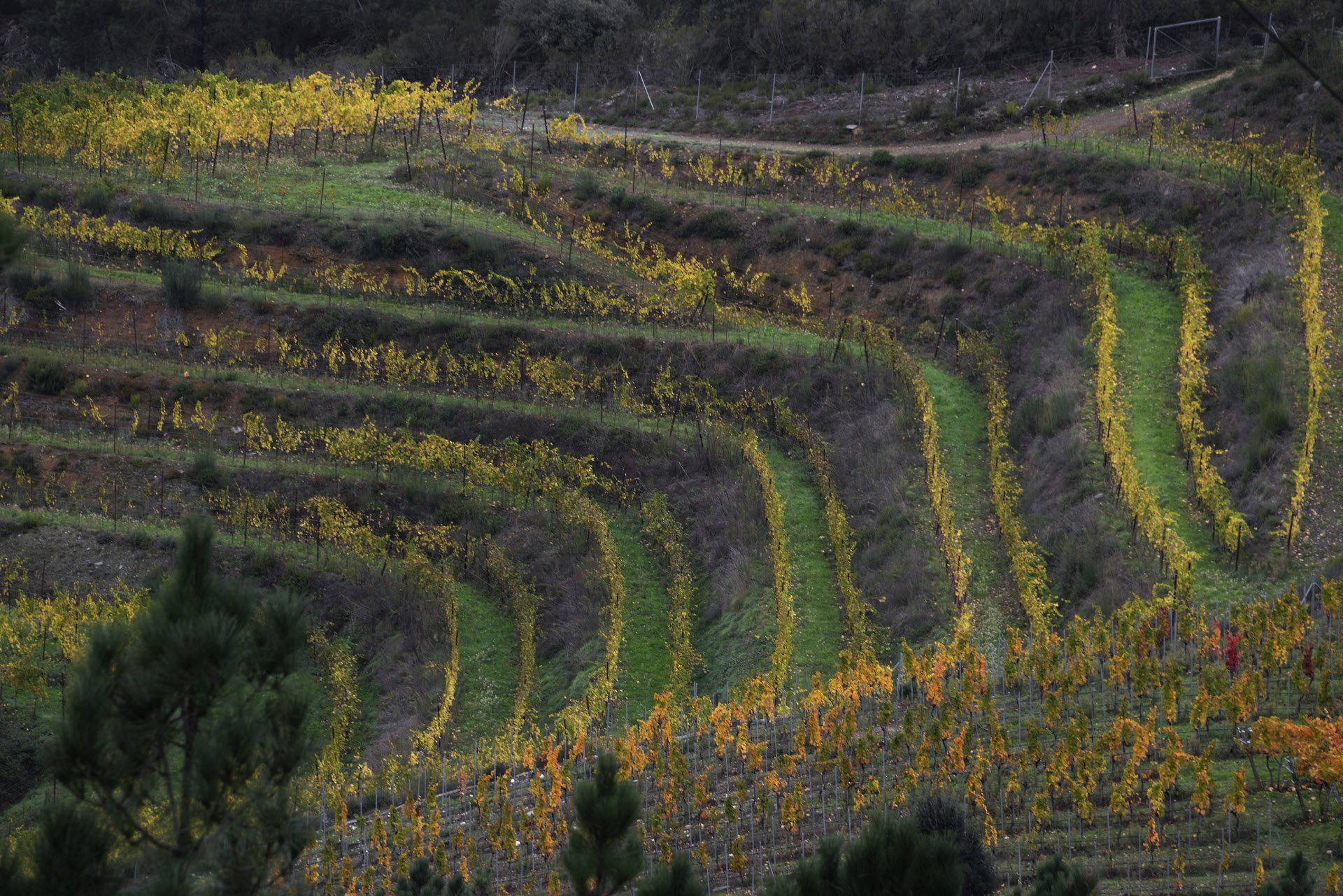
RIBEIRA SACRA
The “Sacred Riverbank”
Located in the northwest corner of Spain and named for the numerous monastic sites that dot the hillsides above the winding Sil and Minho rivers, Ribeira Sacra was officially designated a D.O. (Denominación de Origen Protegida) winegrowing region in Galicia by the Spanish government in 1996; however, wine grapes have been cultivated on its steeply terraced slopes for millennia.
Here, vineyards perch precariously along steep hillsides dotted with Romanesque architecture and Roman ruins, offering some of the most breathtaking and dramatic views to travelers. Its Atlantic-influenced climate and slate soils are perfect for cultivating the region’s two most famous indigenous varieties: the beautifully floral mencía and elegantly mineral godello.
Galicia is rich in wine history dating back to the Romans, whose legions arrived around 137 bce and planted the first vineyards in the region. In Ribeira Sacra, they constructed stone terraces overlooking the rivers in a practice that is still utilized today to prevent soil erosion, and the spiced wines they crafted from the region were served at the emperor’s table in Rome.
In the Middle Ages, a strong monastic presence in the region, fortified by the famed Camino de Santiago pilgrimage route, continued the tradition of winegrowing, with monks carefully tending their vineyards and crafting wines that were consumed both domestically and for trade. The export of wines was a key economic driver for the region from this period through the 19th century.
The 20th century saw the arrival of phylloxera to the region, which decimated the vineyards of Galicia along with much of Europe. This blight, coupled with an exodus of rural populations to the cities for employment beginning in the 1950s, led to an abandonment of many towns in the region. Located in one of these “disappearing villages,” Alvaredos-Hobbs strives to bring attention to this unique winegrowing region and help to shed light on the beautiful wines that come from the region’s singular terroir.
Two Millenia of winegrowing…
Galicia boasts the largest concentration of monasteries in Europe. This sizeable monastic population helped to promote grape growing and winemaking over the centuries.

Ribeira sacra D.O.
The village of Alvaredos rests on the northern banks of the Sil River in the sub-region of Quiroga in Ribeira Sacra, a stone’s throw from the neighboring Valdeorras D.O.
VITICULTURA HEROICA
The steeply terraced hillsides of the region are some of the most difficult to cultivate in the wine world, rivalling the famed regions of Alsace in France or the Douro in Portugal.
The rugged terrain (slopes can reach up to 70% in some areas) mandates that each vine is carefully tended to by hand, as mechanization is untenable in such a hostile environment. A truly “heroic” effort by vignerons and their intrepid teams.





